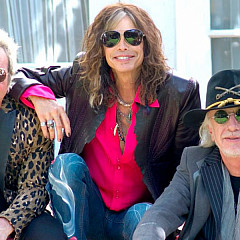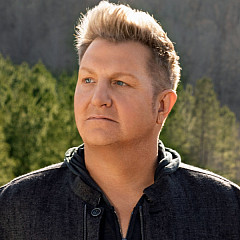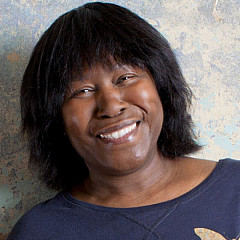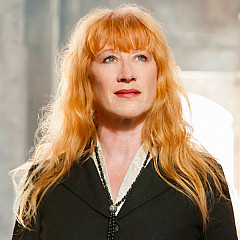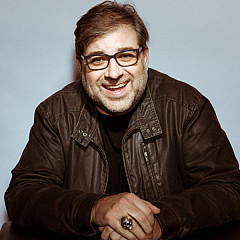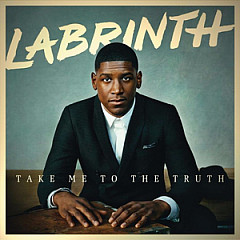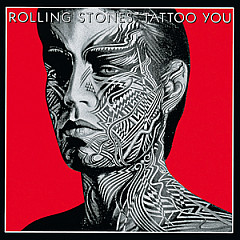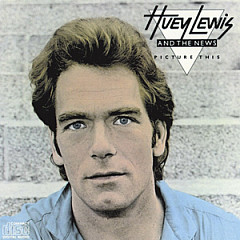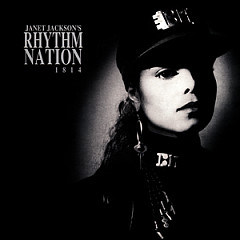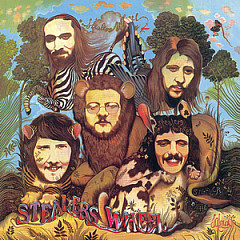With a career that began in the early '80s, it was announced in 2014 that Lilker was going to be retiring from the grind of the road. However, when he spoke with Songfacts, Lilker explained that he's not going to completely bow out of the metal scene, and touched upon other topics, including his friendship with another distinguished distorto-bassist, songwriting, and a flight snafu involving several countries.
 Greg Prato (Songfacts): Looking back at your career and all the bands that you've played with, do you agree that you may be the heavy metal equivalent of Forrest Gump?
Greg Prato (Songfacts): Looking back at your career and all the bands that you've played with, do you agree that you may be the heavy metal equivalent of Forrest Gump?Dan Lilker: Yeah. I suppose that's a compliment, right?
Songfacts: It is!
Dan: Sure, man. Never thought of that, but yeah, I could roll with that.
Songfacts: It's pretty impressive, all the bands that you've played with and also bands that are considered to be a pretty big influence on metal.
Dan: Yeah. Well, then, sure. That's pretty flattering, actually.
Songfacts: Something that you may be asked a lot lately is why did you decide this year to retire?
Dan: Mostly it has to do with just traveling. I just did a run where Brutal Truth played Hellfest, but we started it with me doing a festival, playing bass for Lockup in the Czech Republic and then doing five shows in Spain and in France, and then Hellfest. So that involves a lot of flying. Dude, every flight I had to deal with on that little trip I just got back from a week ago was a complete disaster. I tried to get out of Rochester on Thursday the 12th. I could not. I had to go back the next day. When I went back to the airport to get to Prague, to go to DC, Frankfurt, and Prague... I'm going to tell you the whole sordid story so you'll know exactly what I had to deal with.
I managed to get out, but I didn't notice that the ground crew check had only ticketed my bags to Frankfurt, not Prague. So I did manage to get to DC that day. But then leaving DC, the flight was an hour late because there was a hold because there was a possibility of thunderstorms. I got to Frankfurt, I raced through immigration and security, usually kind of stressful rush. Made it to the gate for Prague and they're, like, "Can we just see your bag tags? Uh oh, your bags are only ticketed to Frankfurt." So now I have to go to baggage claim. Grab my shit, re-check it up at the Lufthansa counter and make the next flight to Prague.
And that was after no sleep on the plane when I have a show that night, because I couldn't make it out the day before when I wanted to rest up. So I made it there. I did a show. I was a little delirious.
The next day I had to fly to Barcelona to join up with Brutal Truth, but the promoter had booked my ticket as Dan, not Daniel, so the guy wouldn't let me get on that flight. I had to buy another ticket at the last minute, and just made that flight.
And then after going home from Paris, we're supposed to leave, and they're like, "No, folks, sorry, we have a mechanical problem." They pull it back to the gate, and five hours later I leave. So when I get to Newark I have to take another flight to Rochester later than the original one. I finally get to Newark, and I get a text that the flight has been cancelled and I have to stay overnight in Newark and get back the next day.
So that's the kind of shit I just don't feel like dealing with anymore.
Songfacts: When you're in an airport like Frankfurt, is it easy to find someone that speaks English?
Dan: No, that's not a problem. It's never a language barrier issue. It's more like an incompetence issue.
Songfacts: That's something that I think maybe the average fan doesn't realize - all the hard work that touring bands have to put in as far as when you travel to different countries.
Dan: Yeah. They just see the side where it's glamorous, getting to travel to places, and they're like, "Oh, poor baby, sick of getting on an airplane going to Spain?" or something like that. But unless you've lived through it and gone through the stress of, "Oh, shit, am I going to make it?," that can be just awful, gut-wrenching stress, and that's the kind of shit I'd like to do less often. You know, I'm going to be 50 in October. I just want to have a little more stability. So that's the main reason.
Songfacts: So what are your plans? Do you think you might keep recording but just not touring?
Dan: I'm still going to be doing stuff where I'll be traveling here and there, it's just going to be in a more relaxed vibe. That's why I just quit the main band I'm in: So I could still do stuff like Lock Up and Venomous Concept and other stuff will pop up now and then. But I've taken out the main reason I travel a lot, plus we haven't been traveling as much anyway, with people's family obligations, as people age. We're not really doing as much and not really paying the bills as much anymore.
Dan: No, not really. The stuff I come up with in my head is easier on guitar. Sometimes I'll write guitar riffs, then I'll have to figure out later what I want to do on bass. It's easier to show other people, and I have typical recording software here where if I want to demo something that I've written, I know how to program drums enough to kind of depict what I was envisioning and then do guitar and bass tracks over it. So when I say I've got something, I've got a new riff, and I'll present that. Otherwise, there's no rule with it, it's just whatever happens to be handy.
Songfacts: Besides bass and also six-string guitar, have you ever written a song on any other instrument?
Dan: Well, yeah. I've written stuff where I've done my kind of weird soundtrack-y stuff with recording software I have here, and I've realized that the riffs translate to something that could be metal. Sometimes the format can be adjusted so you're playing the same notes, but instead of something that sounds like a horror movie, you're using guitars and everything. Sometimes it just translates.
Songfacts: Could you give an example of a song that wound up working like that, where you wrote it on the software and then transposed it to bass or guitar and also worked it up in a band setting?
Dan: Mostly with Nokturnal Hellstorm, the black metal band. That mostly works because, it sounds creepy and horror-like. Probably some stuff around the Evolution Through Revolution and End Time, the records that we wrote when we came back and did stuff.
Some of the stuff like "Get a Therapist... Spare the World" on Evolution, some of the riffs on End Time, like on "Simple Math," some of that might have started out as weird stuff that was in a different context but translated to grind, mostly with black metal stuff, though, because there's the harm of the aspect.
Songfacts: And who would you say are your favorite songwriters?
Dan: I don't think about that too much. You've got your classics like Lennon/McCartney and Jagger/Richards, but after that, I suppose in the metal scene, Shane [Embury] from Napalm Death, he's a great songwriter. Kerry King and Jeff Hanneman from Slayer. I don't really think about other people creating, not like an ego trip or anything. It doesn't affect what I do. I don't really think about it.
Songfacts: I know back in the '80s when Cliff Burton died, I always thought that since you have a similar bass tone to Cliff, you may have been a good choice to possibly join the band. Did that thought ever cross your mind at that point when Metallica was trying out bassists after Cliff Burton?
Dan: Yeah, it did. And it crossed other people's minds, too, because that's around the time when I was going into a lot of CBGB's hardcore matinees, and people came up to me, saying with a wink, "So, Dan, you joining Metallica?" But I never got a call about it.
Who knows if I would have lasted. But that's a band where two dudes make all the money and everybody else gets on the salary and they pretty much dictate exactly what they want to do. And that first Metallica album, …And Justice For All, that came out after Cliff died that had Jason [Newsted] on it, there's no bass on it at all.
Dude, I don't know. I don't know if I would have been happy creatively. I mean, most of the bands I've been in, I'm one of the main songwriters and direct the nature of the music. But no, I never got the opportunity to figure out what would have happened with that.
Songfacts: I'm surprised, because weren't you kind of friendly with the Metallica guys, since Anthrax crossed paths with Metallica in the early '80s when they first came to the Queens area?
Dan: Yeah. But that was about three years before that. They definitely were still friends and everything, I just didn't see them as much because by then SOD was already over and I was mostly doing the Nuclear thing.
Songfacts: I would have thought that your name would have popped up for them as a possible bassist to try out.
Dan: I'm sure it might have popped up amongst other names. I'm sure I was in some kind of short list or something. But obviously nothing happened.
Dan: Yeah. Cliff was a really cool dude. He smoked weed more than those other guys. We bonded over that. He was real down to earth. He was from a smaller town, so he was just a real cool, mellow dude who just liked to party. It was quite a crushing blow hearing what happened.
Songfacts: You just mentioned going to hardcore shows at CBGB's. You've always had long hair, and something that I've always found pretty fascinating is that whole era when heavy metal and hardcore punk mixed together. So looking back, what are some memories of that and how exactly would you say in the early days hardcore punk rockers and heavy metal fans got along at those shows?
Dan: There really weren't any problems, not that I remember. Of course, maybe it was less of a problem for me, because that's right around the time the SOD album came out. Now, not everybody liked SOD, it clearly is offensive to some people. But I'm digressing.
Yeah, when I first started doing the shows at CBGB's, there were these big imposing looking skinheads, including Billy Milano, for instance. They would come up to you and go, "Hey, man, you're that dude in that band Nuclear Assault, right? You were the best, how's it going, man?" Blah blah blah. People who might have been assholes, who might have been the ones who had something to prove, those aren't people that were really into the scene, and those are the ones who might have been in metal six months ago and are now being the insecure chameleon type: "I'm into hardcore now, I was never into metal, and what the hell are you doing here, Long Hair?" It's like, "Dude, I saw you at L'Amours last year. You just have short hair now."
Songfacts: Looking back at that first Anthrax album [Fistful of Metal], did you have a hand in writing any of the lyrics, or was it really just the music that you helped write on that album?
Dan: It was just the music. I didn't take part in any lyrical stuff.
Songfacts: If you just want to think back to that album, does anything stick out as far as the writing and also recording of that first Anthrax album?
Dan: Well, yeah. There was the notorious thing where we did the Alice Cooper cover, "I'm Eighteen," and Carl Canedy from the Rods - the drummer - was producing the record. Now, I had never recorded on an album before, and I was a nervous 19-year-old. And back then, a producer could not just make stuff sound good, they could also make suggestions about how to play stuff, depending on how deeply involved the band's going to get. When you're doing a first record you might rely on a producer more so than later, when you're more confident in the studio.
So the upshot is that when we were doing the bass line after that record, on all the other songs, I did them well and played them fine. For that one, they were still working out the parts, so Carl kept changing the bass line on me. So I would play it a certain way, and he would go, "No, actually, you know what, maybe you should play the E a little later like that." So I just kept doing it over and over again, because he was making these minor little changes. After a while I would get confused and play a note the wrong way, so it took 25 or 30 takes for me to play that right because he kept changing the part - which was about a good 20 of them - and then I would fuck up, because all the tiny little changes that would mess me up. So a song that sounds relatively easy was actually very difficult.
After I was thrown out, the guys unfairly said, "Well, it took him 30 times to record the bass track for 'I'm Eighteen,'" and if you listen to the bass track, if you didn't know the whole story, you would say, "Well, that's weird, isn't it?" It's only, like, five notes."
So I do remember that and when I was thrown out, being very annoyed that they would use that as an example. Because by telling half the story, that's like saying, "It took that guy half an hour to climb that hill," not mentioning that he had crutches.
Songfacts: And what about the first SOD album (Speak English or Die), did you have a hand in writing any of those lyrics or it was just the music?
Dan: Actually, I did write lyrics with SOD. Scott [Ian] and I wrote most of the more obnoxious lyrics, like, "Speak English or Die." Scott had a bunch of them written already. Those lyrics are just shock value provocation. We were just writing the wackiest shit we could think of and laughing.
So, yeah, some of those lyrics I realized later might have gone a little overboard and some people might have misunderstood and thought that we meant it, but it was done on purpose because we found that a lot of people in the hardcore scene - this is before people used the word "PC" - seemed to be very uptight and had no sense of humor. So we thought we would just give them something to talk about.
Songfacts: If the first SOD album came out today, do you think that because of the political correctness of today, it would go over the same?
Dan: It probably would have had a harder time just because people seem to be more uptight now. Nevertheless, it was what it was, which is saying it is what it is, but back then. And I don't regret it. Maybe minor aspects went overboard with certain lyrical things, but then again, we didn't really mean them. Perhaps if people realize that, then it's just more funny.
Songfacts: Something I always thought was cool about SOD was that the band didn't take themselves seriously, with a song like, "Milk," for instance.
Dan: Well, yeah, that's the thing. You'd have a song like "Speak English or Die," or "Fuck the Middle East," that people thought were super provocative and offensive, then you would have thought about being hung over and there was no milk in the fridge and you're pissed off. People had to realize, they have to look at the big picture and not just the ones that got their goats.
Songfacts: Looking at the era of Nuclear Assault, what sticks out about the writing of the song "Critical Mass," and what are the lyrics about for that?
Dan: "Critical Mass" on the Handle With Care album, that's a song that John [Connelly] and I wrote together. John wrote a lot of the music. As the band aged, I was having less interest in thrash and more in like, death and grind. So I wasn't writing as much. But I was still writing a bunch by then.
It was just a real strong, heavy song. You have to balance your thrash songs with your heavy, straight-ahead, mid-paced songs. And that must have been one that had good riffs. John did the lyrics. It was basically about a variety of environmental disasters and how mankind was fucking up the planet and just being careless.
Dan: That's almost similar. I think that also has some kind of environmental aspects to it. But Kevin [Sharp] wrote his lyrics in a very interesting way. Kevin didn't like writing stuff with a direct point. It was more like an interpretive thing that people could get different stuff out of. He didn't say, "This is bad, this is good." He just made cryptic statements that people could get what they wanted out of them.
In general, it's about neglecting the earth. It's ironic that both songs you asked about have an environmental aspect to them.
Songfacts: Looking back at your career, what was your favorite band you've played with?
Dan: Well, it's always difficult to answer that question, dude. I've been asked that and I like to give a fair answer, but the problem is that different bands I've played in have fulfilled different parts of what I like about playing a certain type of music. Nuclear Assault: great hardcore-tinged thrash metal. Brutal Truth: whack-ass grindcore. I played in a black metal band called Hemlock in the '90s, and they used to play real primitive, intense black metal. So I can't really answer that, because it would be slighting another band. All those bands fulfilled their little contributions to what I like about playing heavy music in general.
I guess SOD just because it was really fun and there was hardly any effort put into it and it got so popular out of nowhere.
 Songfacts: Do you think there will ever be a genre or a subgenre of metal more extreme than grindcore? Or do you think it is metal pushed to the furthest edge?
Songfacts: Do you think there will ever be a genre or a subgenre of metal more extreme than grindcore? Or do you think it is metal pushed to the furthest edge?Dan: It's probably pushed the furthest, because once you go beyond that, you'd be leaving the genre. You start getting into noise. As far as the speed of stuff, yeah, it reaches a certain limit even with things drummers do, like the gravity drive and other stuff like that. It still falls under grind. So if there is, I'd like to hear it.
Songfacts: I was thinking maybe something someone could try playing grindcore but with different instruments, like maybe violins or something like that, just to try something new.
Dan: That would certainly be interesting. There's been interesting interpretive versions of things. It would just still have to be extreme somehow, so you'd still have to do something to make it unique. But a lot of interesting people are out there doing interesting shit.
November 6, 2014. For all of your Brutal Truth needs, visit facebook.com/brutaltruth.
More Songwriter Interviews

